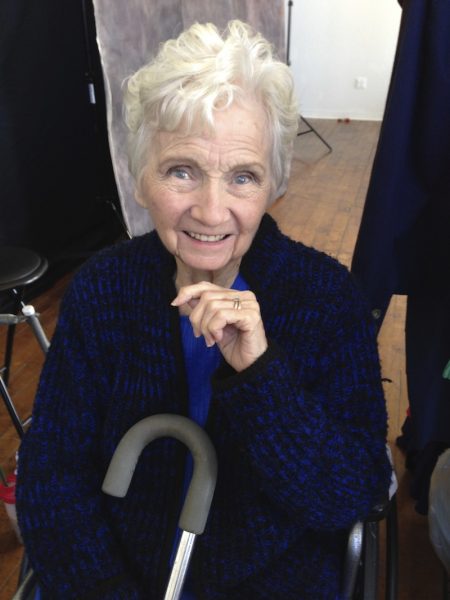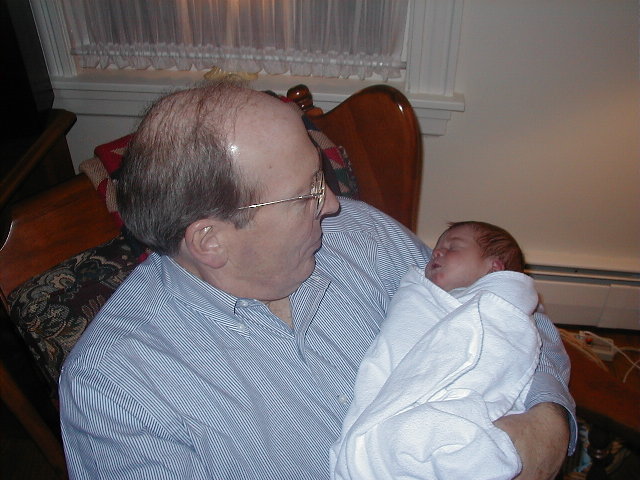 Even though it was several years ago and my mother passed away in 2016, I still have vivid memories of being worried about her driving. Because of some, thankfully minor, fender benders, her insurance premium went up. When I tried to ask her about them, she became extremely defensive and said they weren’t really her fault. When she told what she thought was an amusing story about rolling down her car window to ask someone for directions, I freaked out. The route she was confused about was one she had taken many times before and we had already begun to notice other signs of cognitive and memory issues.
Even though it was several years ago and my mother passed away in 2016, I still have vivid memories of being worried about her driving. Because of some, thankfully minor, fender benders, her insurance premium went up. When I tried to ask her about them, she became extremely defensive and said they weren’t really her fault. When she told what she thought was an amusing story about rolling down her car window to ask someone for directions, I freaked out. The route she was confused about was one she had taken many times before and we had already begun to notice other signs of cognitive and memory issues.
My mother was a sweet, but formidable character. You never told her what to do. She told you. And she loved driving almost more than anything else. It gave her extreme pleasure to cruise through neighborhoods and down country roads. Every yard sale along the way beckoned to her and she would often return with a trunkful of treasures. Her car was her refuge, a place of solitude, and an escape from worry and stress. I just hated to take that away from her. Every time I brought it up, she would get very upset and assure me that she was a good and careful driver. And so, I found myself simply warning her to be careful.
Until Maureen Clancy told me about the accident that killed her father.

William Murphy with his grandson Joe Clancy
William Murphy was 65 and recently retired. On November 8, 2006, he started a part-time job at L.L. Bean in Freeport. About 10:00 that night he was driving home to South Portland in the rain on Interstate 295. At the same time, an 84-year-old man was driving north on the Interstate. Only he was in the wrong lane.
A Portland police officer had spotted the man driving north in the southbound lane near Tukey’s bridge and tried desperately to get his attention. “But the man didn’t see him,” Maureen told me, “and he just plowed straight ahead going more than 60 miles an hour up 295 in the wrong direction. My father was coming down at about the same speed and just around Falmouth — you know, the police officer saw the whole thing — he hit my father head-on. Both he and my father were killed.”
Maureen later learned that the man’s family had tried to take away his car. “We were told he had a limited license and wasn’t supposed to go that far from home,” she recalled. “We met with the son. I think he was heartbroken. Obviously, that his father was dead, but also that he took somebody else’s life at the same time.”
I was stunned to hear Maureen’s story and it made me look at my mother’s situation in a whole new light. It wasn’t just about her. She could hurt or kill someone. That night I told her she couldn’t drive anymore. It was non-negotiable. I would make sure she could still do the things she enjoyed, but she would have to be a passenger, not the driver.
Warning signs that driving is dangerous
If you’re concerned that an older person in your life should stop driving, but aren’t sure, the National Highway Traffic Safety Administration has a list of common warning signs:
- Does the driver confuse the gas and brake pedals or have difficulty working them? Drivers who lift their legs to move from the accelerator to the brake, rather than keeping a heel on the floor and pressing with the toes, may be signaling waning leg strength.
- Does the driver seem to ignore or miss stop signs and other traffic signals? Perhaps the driver is inattentive or cannot spot the signs in a crowded, constantly moving visual field.
- Does the driver weave between or straddle lanes? Signaling incorrectly or not at all when changing lanes can be particularly dangerous, especially if the driver fails to check mirrors or blind spots.
- Do other drivers honk or pass frequently, even when the traffic stream is moving relatively slowly? This may indicate difficulty keeping pace with fast-changing conditions.
- Does the driver get lost or disoriented easily, even in familiar places? This could indicate problems with working memory or early cognitive decline.
- The driver has been issued two or more traffic tickets or warnings in the past two years. Tickets can predict the greatest risk for collision.
- The driver has been involved in two or more collisions or “near-misses” in the past two years. Rear-end crashes, parking lot fender-benders, and side collisions while turning across traffic rank as the most common mishaps for drivers with diminishing skills, depth perception or reaction time.
- Using a “copilot” to help respond to situations in the driving environment. Anyone who cannot drive safely and comfortably without a copilot should not drive at all.
- Driving too slow or too fast for conditions. Driving too slow can be a sign that the driver is compensating for slowed reflexes or reduced reaction time. Those who drive too fast may not realize how fast they are traveling or are overcompensating due to a fear of being noticed for driving too slowly.
Choosing your words
When it was clear that my father should no longer be driving, we had some conversations about it, but the decision was his. He handed over the keys to his truck and instructed me to sell it so he wouldn’t have to look at in the driveway every day.
It was a different story with my mother. Even when I put my foot down, she did not want to give up her independence and would not listen to reason. I enlisted the help of her doctor. He did an evaluation and determined that she had moderate cognitive impairment. He was so concerned about her driving that he sent a form to the Secretary of State stating that she should not be driving. Here’s a link to information about medical requirements here in Maine.
My mother didn’t care what the doctor said and continued to argue with me, which caused us both a great deal of stress. I ended up I hiding her keys. When she looked for them I never admitted to hiding them. I usually just said they must be around somewhere and asked where she needed to go, that someone could give her a ride.
I know now that I could have handled the situation much better, but back then she was in the early stages of dementia and I was always worried and had so, so much to learn. Several months ago, I had the privilege of interviewing dementia expert Teepa Snow. When I shared the story about taking away my mother’s keys, she kindly offered a different approach. I might have said the doctor didn’t want her to drive for a while until we figured some things out. That I would do the driving and she could do the navigating. That she had always been the best driver and I hated having to do it, but that for right now it was the recommendation. Saying that it was for right now was the most important phrase.
“You can’t rob me of all hope,” said Teepa. “If you rob me of all hope, I’ll fight you tooth and nail because once my hope is gone, what do I have left? And so if we’re removing something that we know is incredibly important, for right now becomes a real important phrase and I hate it for you, that’s really important too. You’re not alone.”
I may have gotten it wrong with my mother, but if your parent has early dementia, maybe you can learn from my mistakes and Teepa’s advice. You can listen to our entire conversation in this podcast: Words of wisdom on caring for someone with Alzheimer’s.
Right or wrong in my approach, the critical thing to remember is that if someone is a dangerous driver, he or she shouldn’t be on the road. It’s no easy task telling a parent they can’t drive anymore, but imagine the courage it would take to face someone after it’s too late. Someone like Maureen and her family.

Thoughtful article, useful information for a difficult problem…well done!
Thanks Fred. I wonder how our children will deal with us — we’re next!
Great article about a problem that most of us are facing with our parents. However, I don’t think that hiding the keys is the solution. Providing good alternatives is essential, despite the fact there are few you may immediately think of. For my mother in FL, the answer was to cut back slowly, first eliminating night driving, then eliminating distance driving. She still cherishes her independence to go within a couple of miles to the grocery store, dry cleaners, etc. How this was done was to provide her with all of the resources available to her, including public transportation and taxis, but also, since she could afford it, a wonderful woman to drive her where she wished three times a week. She, of course, resisted at first, but now is a great friend with this woman and doesn’t hesitate to call her for a ride in the countryside, to distant events, etc. If your mother is in the Portland area, ITN Portland is also a wonderful and affordable solution. Private cars, dedicated and kind drivers, and great relationship-building.
Just taking away the keys invites depression, isolation, and family strife at a time when you want to cherish those precious years you have left with your mom.
Good luck!!
Heidi,
Thank you for the great suggestions. We are fortunate that, in addition to family members, we have caregivers during the week who take my mother out to do errands and cruise around for yard sales. She’s not able to go to church anymore, but a volunteer from her church brings her communion and another visits with her once a week. A complicating factor in my mother’s case is that she was in the early stages of Alzheimer’s disease, only we didn’t know it at the time. If I hadn’t hidden the keys, she would have driven even if she agreed not to (something we tested). Confronting the issue with my father, who passed away two years ago, was a completely different scenario. We were able to have a rational conversation with him about his driving and he agreed that he shouldn’t be anymore. Instead of yard sales, he loved going to out to eat, so we tried to see that he did as often as possible! And if he wanted something extra delicious, like a lobster dinner, it meant who ever took him got one too!